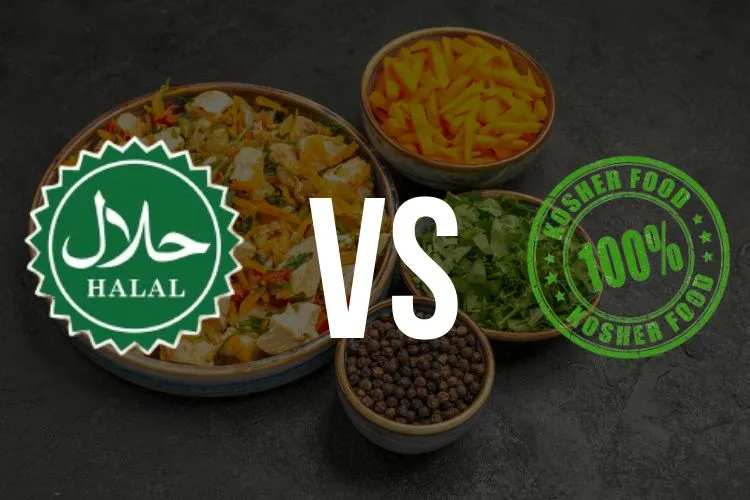The relationship between religion and food has always been an important part of human culture. Different religious groups have their own rules and guidelines about what is allowed and prohibited in terms of food consumption. Two such religious dietary practices are Halal and Kosher. In this article, we will explore the differences and similarities between these two food systems, highlighting their origins, basic principles and certifications.
The Meaning of Halal and Kosher
Halal and Kosher are terms used to describe foods that are considered suitable for consumption according to the religious laws of Islam and Judaism, respectively. Both food systems derive from religious scriptures and are based on moral and ethical principles.
Halal: Foods Permitted by Islam
The word “ Halal ” comes from Arabic and means “permitted” or “lawful”. In Islam, Halal food is governed by Islamic law, known as Shariah. These laws determine what Muslims can and cannot consume, based on instructions found in the Quran and prophetic tradition.
The basic principles of Halal eating include:
- Ritual Slaughter: Halal slaughter must be carried out by a practicing Muslim, who pronounces the name of Allah before carrying out the slaughter. The knife used must be sharp, and the animal must be slaughtered quickly and humanely.
- Prohibition of Prohibited Ingredients: Halal foods cannot contain prohibited ingredients such as pork, alcohol or any substance considered impure under Islamic law.
- Absence of Cross-Contamination: Halal foods must be prepared, processed and stored separately from non-Halal foods to avoid cross-contamination.
- Halal Certification: To ensure compliance with Halal principles, many foods are certified by recognized Halal organizations, which verify production processes and provide certification seals.
Kosher: Food Appropriate for Judaism
The word “Kosher” comes from Hebrew and means “proper” or “proper”. The Kosher food system is based on the Jewish dietary laws known as Kashrut. These laws are found mainly in the book of Leviticus, in the Torah, and establish the guidelines for the Jewish diet.
The basic principles of Kosher eating include:
- Separation of Meat and Milk: Kosher foods cannot mix meat and dairy in the same dish or meal. This includes separating utensils and equipment used to prepare and consume these foods.
- Ritual Slaughter: Kosher slaughter must be carried out by a trained expert, known as a “shochet,” who follows a specific set of rules. The animal must be slaughtered quickly and humanely, with a sharp knife and without imperfections.
- Prohibition of Certain Foods: Kosher foods prohibit the consumption of pork, seafood without scales and fins, and any food containing non-Kosher ingredients.
- Kosher Certification: Just like Halal foods, many Kosher foods go through a certification process carried out by recognized Kosher organizations. These certifications guarantee that the food was prepared in accordance with Jewish dietary laws.
Similarities and Differences
Although Halal and Kosher share some similarities in terms of basic principles, such as humane ritual slaughter, separation of certain foods, and certification, there are some important differences between these religious food systems.
- Religious Origins: Halal has its roots in Islamic tradition, while Kosher is rooted in Jewish laws and traditions. These differences in origin result in different interpretations and practices.
- Dietary Restrictions: Although both prohibit the consumption of pork, Kosher also prohibits the consumption of seafood without scales and fins, while Halal allows the consumption of seafood.
- Certifications: Although both systems have certifications to ensure compliance with their food laws, the organizations responsible for certification may vary between Halal and Kosher. Furthermore, the certification symbols may also be different.
- Slaughtering Practices: Although both require ritual slaughter, butchering practices may differ. In Halal, the slaughter is carried out by a Muslim who pronounces the name of Allah, while in Kosher the slaughter is carried out by a trained expert who follows specific rules.
Conclusion
The relationship between religion and food is fascinating and deeply rooted in human culture. As we explore the differences between Halal and Kosher foods in this article, we invite you, the reader, to share your perspectives, experiences, or additional knowledge on this topic. Have you ever had the opportunity to try Halal or Kosher foods? Do you have any observations about the similarities or differences between these religious food systems? Leave your comment below to further enrich this conversation and promote a deeper understanding of religious eating practices. Your contribution is valuable!













